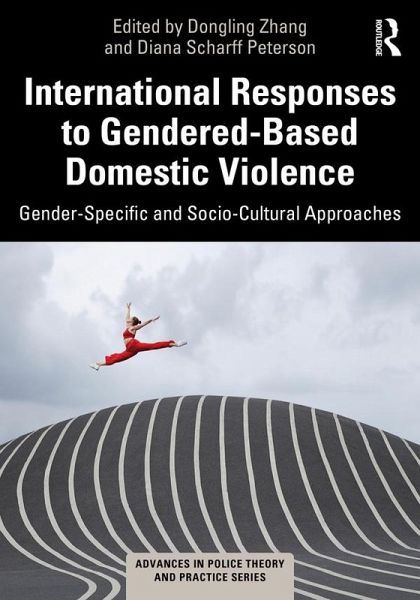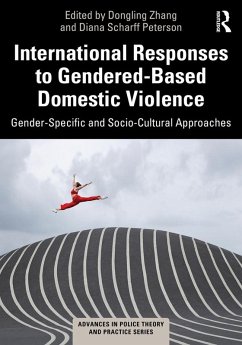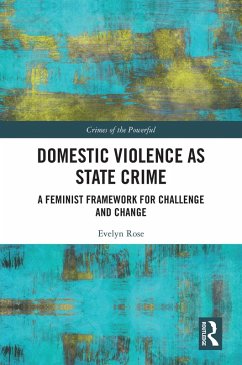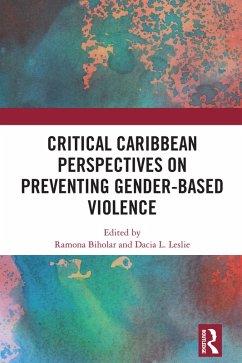
International Responses to Gendered-Based Domestic Violence (eBook, PDF)
Gender-Specific and Socio-Cultural Approaches
Redaktion: Zhang, Dongling; Scharff Peterson, Diana
Versandkostenfrei!
Sofort per Download lieferbar
36,95 €
inkl. MwSt.
Weitere Ausgaben:

PAYBACK Punkte
18 °P sammeln!
This edited volume represents a joint effort by international experts to analyze the prevalence and nature of gender-based domestic violence across the globe and how it is dealt with at both national and international levels. With studies being conducted in 20 different countries and 4 distinct regions, the contributors to this volume shed light on the ways in which contextual particularities shape the practices and strategies of addressing the socio-cultural and legal problem of gender-based domestic violence in the countries or regions where they do research. Special attention is devoted to ...
This edited volume represents a joint effort by international experts to analyze the prevalence and nature of gender-based domestic violence across the globe and how it is dealt with at both national and international levels. With studies being conducted in 20 different countries and 4 distinct regions, the contributors to this volume shed light on the ways in which contextual particularities shape the practices and strategies of addressing the socio-cultural and legal problem of gender-based domestic violence in the countries or regions where they do research. Special attention is devoted to developing countries where there is a lack of a consistent legal definition of gender-based domestic violence and where violence against women is widely considered a private matter. The authors of the chapters share a common goal of raising public awareness of the significance in nuanced local experiences of women and other individuals from gender and sexual minority groups facing gender-based violence.
Furthermore, the authors attend, analytically, to the newly emerging, overlapping influences of COVID-19 and global warming. Their research findings acknowledge and provide a detailed account of how the two ecological and socio-economic crises can combine to produce economic devastation, disconnect victims from necessary social services and assistance, and create a large degree of panic and uncertainty. In addition, they intend to offer insights into next steps to not only adjust existing public policies, legislation, and social services to the ever-changing national and global contexts, but also to make new ones.
The book is intended for a wide range of scholars (both professors and students) and practitioners in a large number of areas, including but not limited to criminal justice, criminology, law, human rights, social justice, social work, nursing, sociology, and political or public affairs.
Furthermore, the authors attend, analytically, to the newly emerging, overlapping influences of COVID-19 and global warming. Their research findings acknowledge and provide a detailed account of how the two ecological and socio-economic crises can combine to produce economic devastation, disconnect victims from necessary social services and assistance, and create a large degree of panic and uncertainty. In addition, they intend to offer insights into next steps to not only adjust existing public policies, legislation, and social services to the ever-changing national and global contexts, but also to make new ones.
The book is intended for a wide range of scholars (both professors and students) and practitioners in a large number of areas, including but not limited to criminal justice, criminology, law, human rights, social justice, social work, nursing, sociology, and political or public affairs.
Dieser Download kann aus rechtlichen Gründen nur mit Rechnungsadresse in A, B, BG, CY, CZ, D, DK, EW, E, FIN, F, GR, HR, H, IRL, I, LT, L, LR, M, NL, PL, P, R, S, SLO, SK ausgeliefert werden.













